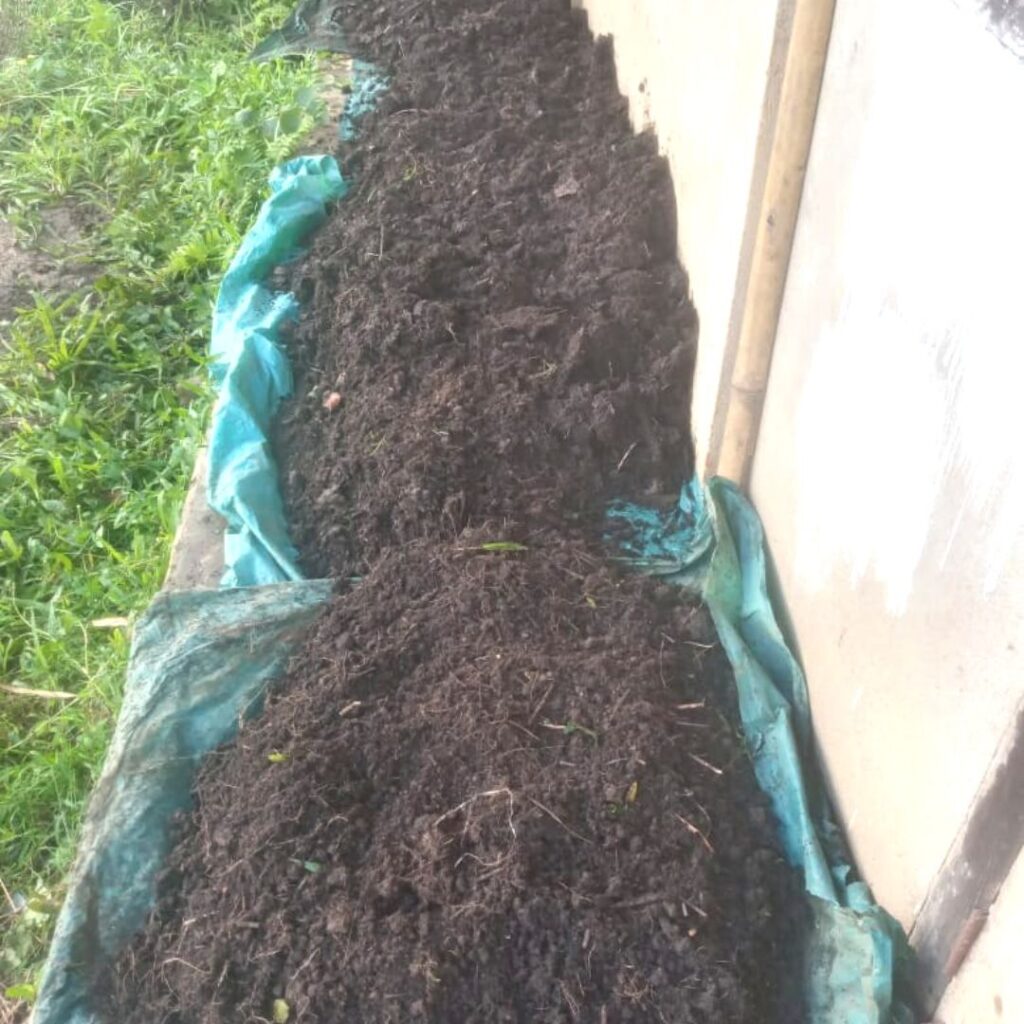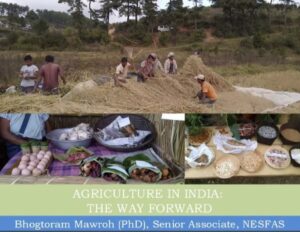Composting methods are becoming quite the rage off late due to their amazing benefits and high yield outcomes without adverse effects to the environment. There are several such methods of composting and they can be widely classified into ‘hot’ and ‘cold’ composting methods. As opposed to cold composting, hot composting does not create a coarse compost; instead a finer compost is developed. One method of hot composting that has gained a lot of traction over the years is the Berkeley composting method; it has also found its way to the indigenous villages of Meghalaya.
Bah Phillip Maring, an Agroecology Learning Circle (ALC) member from Mawryngkang, Ri-Bhoi and a few other farmers received training on the Berkeley composting method from the C&RD Block at Umling. The training is part of the NESFAS ongoing project “Empowering Indigenous Communities through Agroecology Learning Circles (ALCs) for resilient, integrated and innovative natural resource management”, which is supported by MBMA and funded by the World Bank.
Bah Phillip has been practicing farming and its various techniques, both old and new since he was a young boy. Over the years he has learnt many innovative ways to make the process of farming and harvesting easy. He mainly cultivates crops such as Yams, Pumpkin varieties, Roselle, Bitter gourd, Chillies, Ginger, Rice, Banana, Loofahs, Cowpea, and more.

The Berkeley Composting method is a fast, efficient and high temperature composting method that makes the compost ready in as few as 18 days. It essentially involves three main steps, which are:
-
Building a compost heap
-
Leaving the compost heap untouched for 4 days and not turning it
-
Turning it every 2 days for 14 days
Some main benefits of the Berkeley composting method that he realized was that it does not impose on the community to use fertilizers and other chemical sources in the soil and subsequently make the soil fertile and healthy for the ecosystem around it. He noticed that the Berkeley composting method works just as well as the other natural composting methods that were used earlier.
Bah Maring played a pivotal role in urging the fellow farmers to make use of the knowledge that he received from the training. Now, the other farmers in the adjacent areas are implementing and imbibing the knowledge from him and trying out Berkeley composting.



